Islamabad/New Delhi, 13 Dzulqa’dah 1437/16 August 016 (MINA) – Tensions rose further between India and Pakistan on Monday as the rival countries’ leaders exchanged barbs on sensitive territorial issues on the occasion of their respective independence days, DPA reported.
Indian Prime Minister Narendra Modi mentioned Pakistan’s restive Balochistan province in his Independence Day speech on Monday, one day after Pakistani President Mamnoon Hussain talked about India-administered Kashmir in a speech to mark his own country’s independence from British rule.
After Modi’s speech, Pakistan invited India for talks on Kashmir, the Himalayan region claimed by both countries.
Pakistan’s Balochistan province has seen unrest in recent years, while India-administered Kashmir has counted at least 50 civilian deaths during violent anti-India protests since July.
Also Read: Pakistan Declares State of War After Car Bomb Incident
The South Asian neighbours, with a history of troubled relations, often accuse each other of supporting rebels in each other’s territories.
“I want to speak a bit about the people in Balochistan, Gilgit, Baltistan, and Pakistan-occupied Kashmir,” Modi said from the Red Fort in New Delhi towards the end of his speech.
In an unprecedented mention of another country’s territory in an Independence Day speech, Modi said: “The world is watching. People of Balochistan, Gilgit and Pakistan-occupied Kashmir have thanked me a lot in the past few days.”
“It is a moment of pride that these people have looked out to India for support,” Modi added.
Also Read: Jakarta Hosts Gala Dinner for World Peace Forum Delegates
Modi had already addressed the issue of Balochistan on Friday, saying that “the time has come for Pakistan to answer the world, on atrocities against people in Balochistan and Pakistan-occupied Kashmir.”
India and Pakistan have fought three wars, two of them over the disputed and heavily armed Kashmir region.
After Modi’s speech on Monday, Pakistan delivered a letter to Indian High Commissioner Gautam Bambawale in Islamabad, inviting the Indian foreign secretary for discussions to resolve the Kashmir issue, according to a statement by Foreign Ministry spokesman Nafees Zakaria.
“The letter highlights the international obligation of both the countries, India and Pakistan, to resolve the Jammu and Kashmir dispute,” said Zakaria.
Also Read: Indonesian Minister Urges Synergy Between Wasathiyah Islam and Chinese Wisdom
The invitation did not appear to mark a change in tone in the territorial row, however. Shortly afterwards, Pakistan’s advisor on foreign affairs lambasted New Delhi for atrocities in Kashmir and for promoting “terrorism” in Balochistan.
“Mr Modi was only trying to divert world attention from the grim tragedy that has been unfolding in the Indian-occupied Kashmir over the past five weeks,” said Sartaj Aziz.
“Prime Minister Modi’s reference to Balochistan, which is an integral part of Pakistan, only proves Pakistan’s contention that India through its main intelligence agency RAW (Research and Analysis Wing), has been fomenting terrorism in Balochistan.”
Also Read: New Delhi Covered in Toxic Smog: Residents Say ‘We Can Hardly Breathe’
Spirit of independence at its peak, Sharif says
On Sunday, celebrating their own independence, Pakistani leaders used their speeches to show support for Kashmiris’ “just struggle” for self-determination in the Indian-administered zone.
“Pakistan cannot forget Kashmiris on this occasion,” President Hussain said.
“Nowadays the spirit of independence in (India-)occupied Kashmir is at its peak,” Pakistani Prime Minister Nawaz Sharif said.
Also Read: Boat Carrying 100 Rohingya Migrants Capsizes in Malaysian Waters
Strong anti-Indian sentiment is prevalent in Muslim-majority Kashmir, which has been gripped by a secessionist movement since the 1980s.
On Monday, one Indian paramilitary officer was killed and nine others, including a policeman, were wounded when suspected militants shot at them in Srinagar, capital of India’s Jammu and Kashmir state.
More than 50,000 people – militants, civilians and security forces – have been killed in India-administered Kashmir since the militancy peaked in the late 1980s. (T/R07/R01)
Mi’raj Islamic News Agency (MINA)
Also Read: Dozens Killed in RSF Drone Strike on Sudanese Village During Funeral







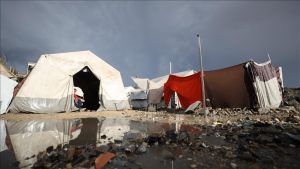
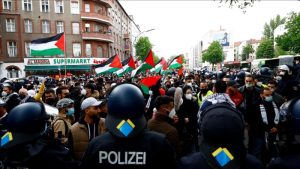
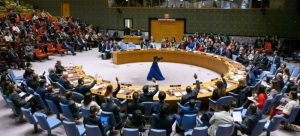
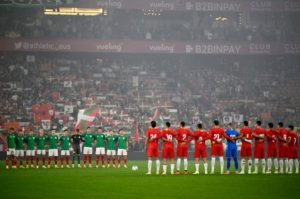
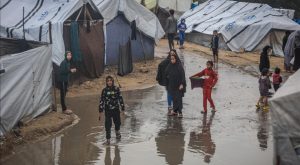
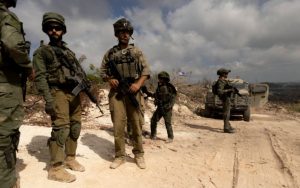
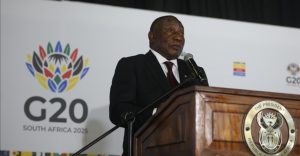
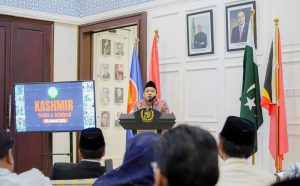
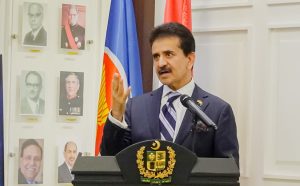
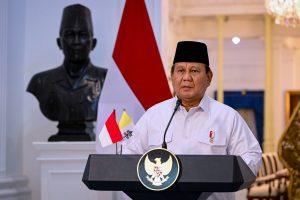
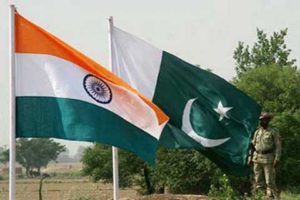
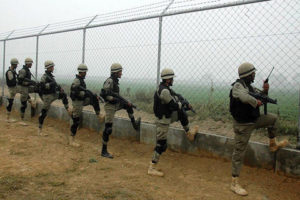
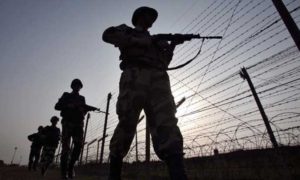








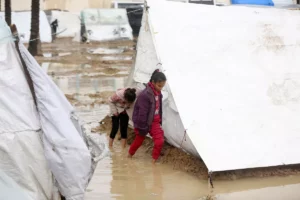
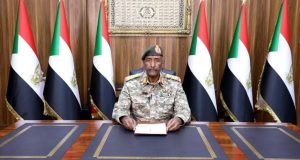



 Mina Indonesia
Mina Indonesia Mina Arabic
Mina Arabic